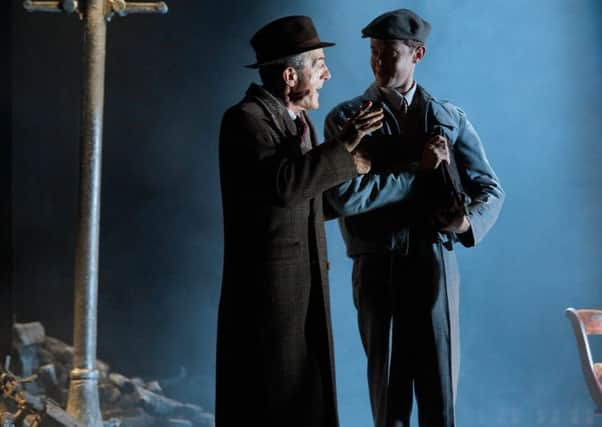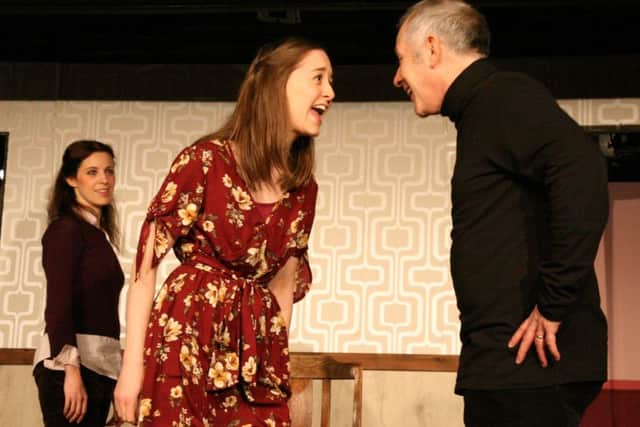Theatre reviews: The Night Watch, King’s Theatre, Edinburgh | Divided, Oran Mor, Glasgow


Essentially, the novel tells the reversed-narrative story of five 1940s characters, beginning in the dusty postwar limbo of 1947, and then working back through 1944 to the terrifying emergency atmosphere of 1941.
Advertisement
Hide AdFour of her five leading characters are female; and the three who are lovers of other women – the narrator Kay, her former lover Helen, and Helen’s current lover Julia – have clearly found the war a liberating experience as well as a horrifying one. Kay, in particular, has loved her wartime work as an ambulance driver during the blitz, and desperately misses not only Helen, but also the chance to do a meaningful “man’s job”.


For the other two characters – fragile repressed gay man Duncan, who refuses to serve in the war, and his pretty and vigorous sister Viv, in a long-term relationship with a married man – the war has been more clearly negative; but either way, it emerges as a devastatingly complex and traumatic experience, which left far more scars than are commonly acknowledged.
Alastair Whatley’s production benefits from a quartet of strong, thoughtful performance from Phoebe Pryce as Kay, Florence Roberts as the lovely Helen, Izabella Urbanowicz as Julia, and Louise Coulthard as Viv, with eloquent support from the other four cast members; and if the show sometimes dwells too long on the predictable joys and horrors of love and jealousy, it also makes space for some moments of rare lyrical beauty, both at the story’s postwar beginning – from which Waters conjures a few threads of hope – and at its end, with Kay’s first glimpse of Helen, among the rubble of a 1941 air raid.
It was perhaps one of the defining facts of RD Laing’s life that his generation was just too young to play an active part in the war that shaped their world, not least through its legacy of trauma. Born in Govanhill in 1927, Ronnie Laing was one of the most remarkable men of the postwar period, a rebel doctor who utterly rejected most of the psychiatric treatments available in the 1950s, and who changed the world of psychiatry forever with his groundbreaking 1960 book The Divided Self.
Best known as the writer of Rab C Nesbit, Ian Pattison is also formidable short-form playwright; and Divided – his study of RD Laing, first seen at Oran Mor in 2013 – pursues two lines of argument with terrific flair. On one hand, Billy Mack’s inspired Laing offers a brilliantly humorous monologue on his upbringing by pathologically prudish Glasgow parents whom he describes as “deranged”, and on how it influenced his decision to become a psychiatrist – “it was either that, or become a patient”.
On the other, we witness the total dysfunction of Laing’s own private life, during which he fathered ten children with four different women, giving none of them sufficient care and attention. Pattison’s play dwells on the plight of two of his daughters by his first wife, Karen and Susie, who are living back in Glasgow when Susie is diagnosed with terminal leukaemia, aged only 21.
Advertisement
Hide AdIn Claire Prenton’s beautifully-shaped production, Eva Traynor and Sarah Miele are heartbreakingly believable as Karen and Susie. It’s Billy Mack’s stellar performance as Laing that makes this play shine, though; along with Pink Floyd’s Dark Side Of The Moon on the soundtrack, capturing a moment when postwar Britain, with all its scars, was on the cutting-edge of the new, rather than seeking a return to a largely mythical past.
JOYCE MCMILLAN